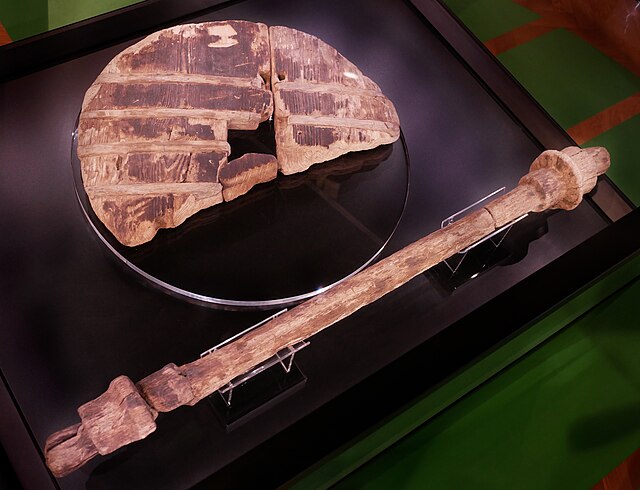In the automotive industry, alloy wheels are wheels that are made from an alloy of aluminium or magnesium. Alloys are mixtures of a metal and other elements. They generally provide greater strength over pure metals, which are usually much softer and more ductile. Alloys of aluminium or magnesium are typically lighter for the same strength, provide better heat conduction, and often produce improved cosmetic appearance over steel wheels. Although steel, the most common material used in wheel production, is an alloy of iron and carbon, the term "alloy wheel" is usually reserved for wheels made from nonferrous alloys.
Alloy wheel on a Mercury Grand Marquis
Alcoa's heavy-duty alloy wheel, for buses and trucks.
An aluminium alloy wheel designed to recall the crossed spokes of a wire wheel
Chrysler alloy wheel
A wheel is a rotating component that is intended to turn on an axle bearing. The wheel is one of the key components of the wheel and axle which is one of the six simple machines. Wheels, in conjunction with axles, allow heavy objects to be moved easily facilitating movement or transportation while supporting a load, or performing labor in machines. Wheels are also used for other purposes, such as a ship's wheel, steering wheel, potter's wheel, and flywheel.
This Ljubljana Marshes Wheel with axle is the oldest wooden wheel yet discovered dating to Copper Age (c. 3130 BCE)
A depiction of an onager-drawn cart on the Sumerian "War" panel of the Standard of Ur (c. 2500 BCE)
Solid wheels on a heavy temple car, contrasted with the lighter wire-spoked wheels of the black roadster bicycle in the foreground
A figurine featuring the New World's independently invented wheel. Among the places where wheeled toys were found, Mesoamerica is the only one where the wheel was never put to practical use before the 16th century.








